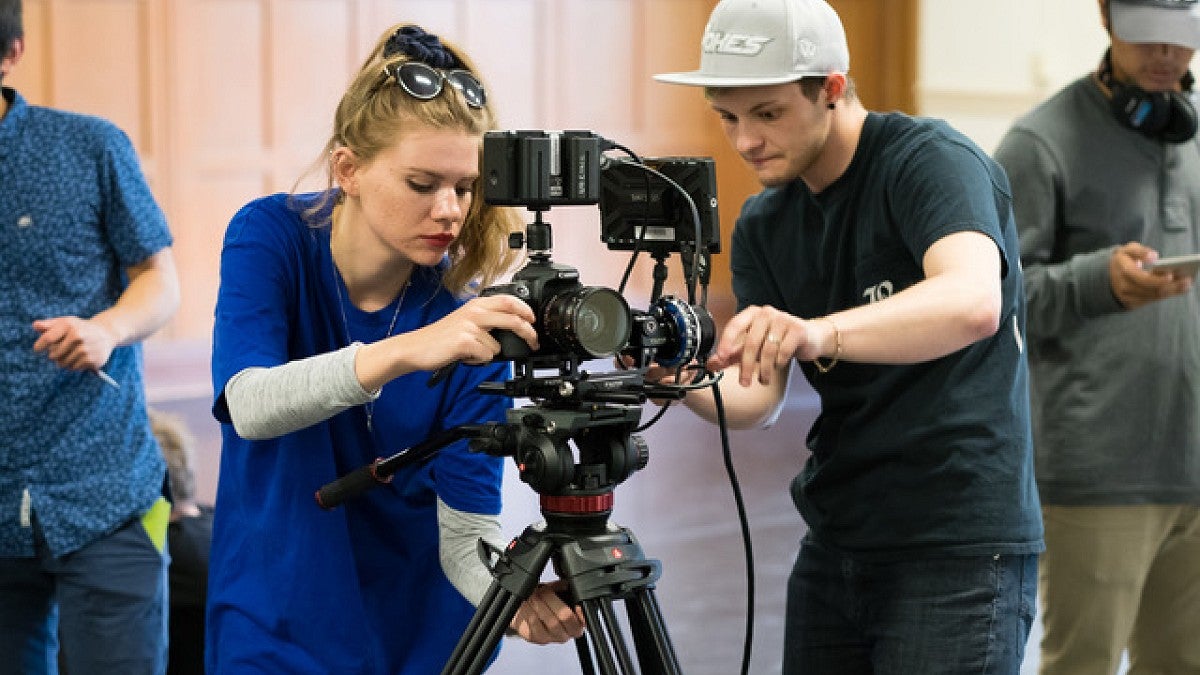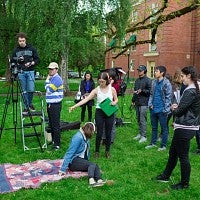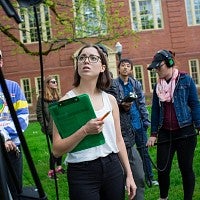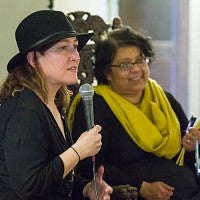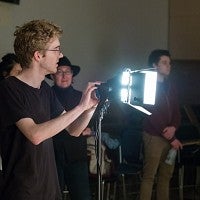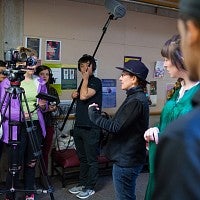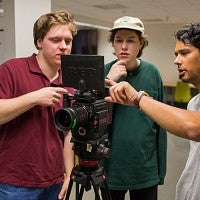A popular UO program will become a department as faculty members focused on cinema studies come together formally under the College of Arts and Sciences.
Scott Coltrane, provost and senior vice president, officially announced the decision in a memo today, June 12.
“A cross-college collaboration has created an opportunity to elevate the Cinema Studies program to a full department,” Coltrane wrote. “Thanks to a strong partnership among the School of Journalism and Communication, the College of Arts and Sciences, and the School of Architecture and Allied Arts, the University of Oregon has been able to offer this popular curriculum since 2010.”
Three tenure-track faculty from the School of Journalism and Communication and four tenured faculty from the College of Arts and Sciences will become full-time faculty members in the Department of Cinema Studies as of Sept. 16. The College of Arts and Sciences will be the academic home for the new department; Michael Aronson, the current program director, will become the new department head.
“As the program has grown and as it works towards adding a minor to its successful undergraduate degree program, it is now time to formalize it as the Cinema Studies Department,” Coltrane wrote.
According to Coltrane, departmentalization will facilitate essential academic work, such as allowing cinema studies to manage its own course schedule and conduct personnel reviews. It will give the department a clearer and more cohesive identity, establish a core faculty and empower them to create a vision for cinema studies at the UO.
“Moving images saturate our culture and cinema remains one of the world’s most important expressive mediums,” said Aronson. “Cinema studies at Oregon is unique in offering its students an interdisciplinary liberal arts education that blends the study of theory and history with creative filmmaking practice. We’re thrilled that the university is committed to our shared vision for its future.”
The University Senate approved the change, which followed an in-depth internal review that allowed input from critical stakeholders.
“With the shift from an inter-unit structure, there has been some further shifting in faculty lines within the SOJC,” Coltrane wrote. “These positions will become vacancies in that school, and searches for new faculty members will begin in the near future, following a hiring plan submitted by Juan-Carlos Molleda, dean of SOJC.”


